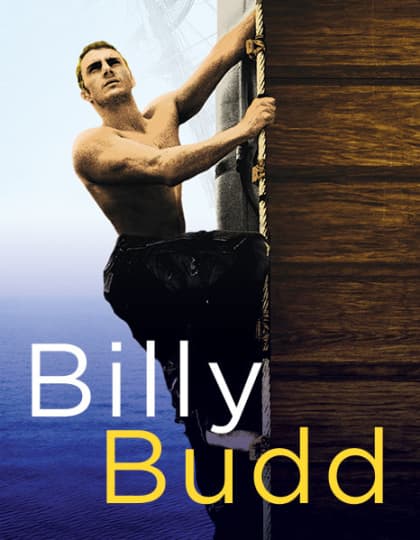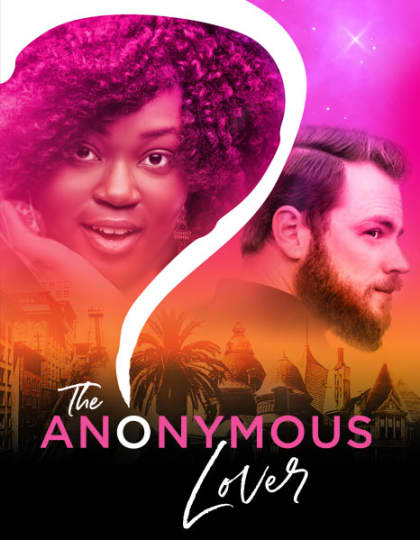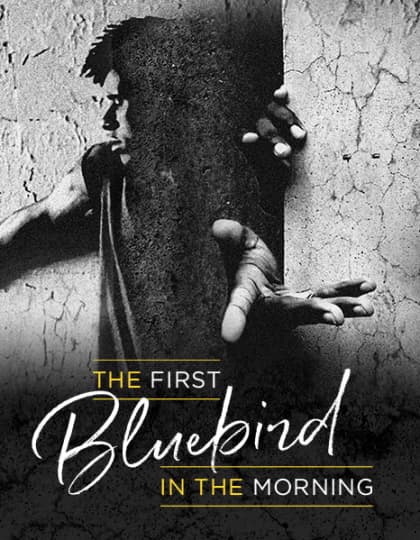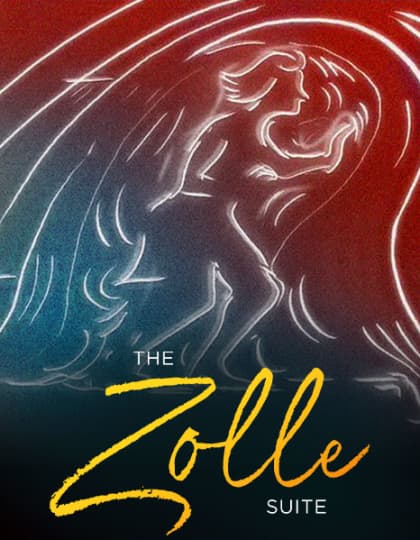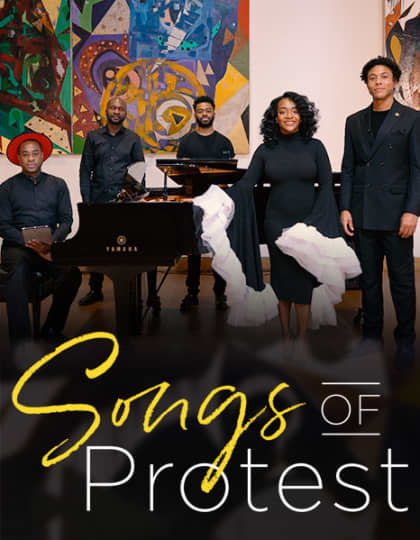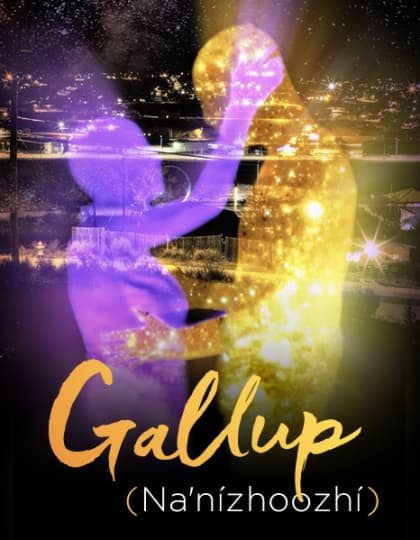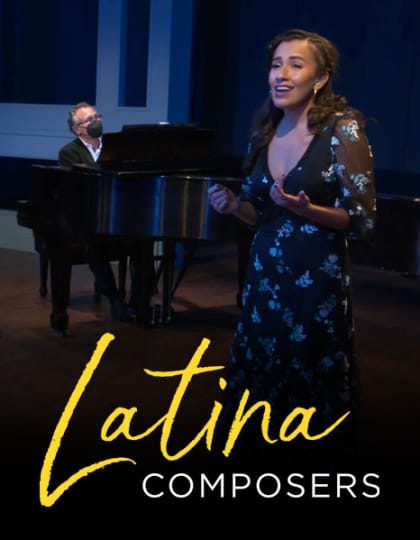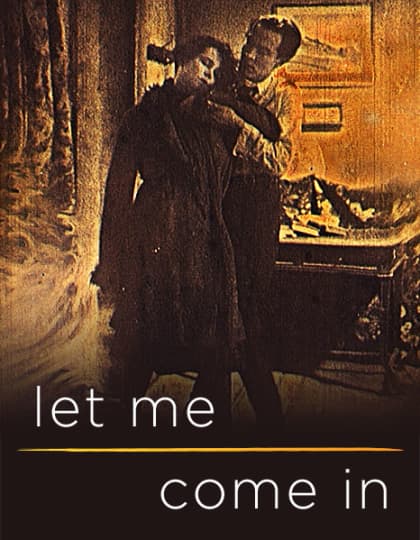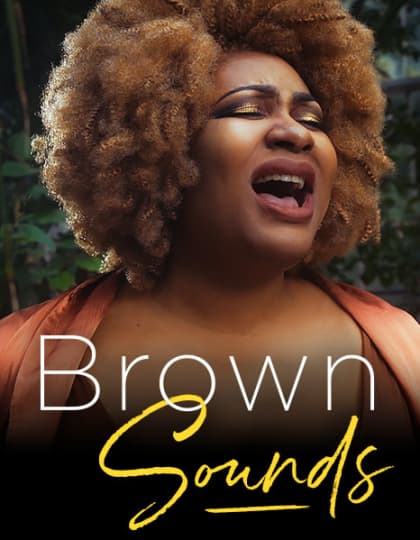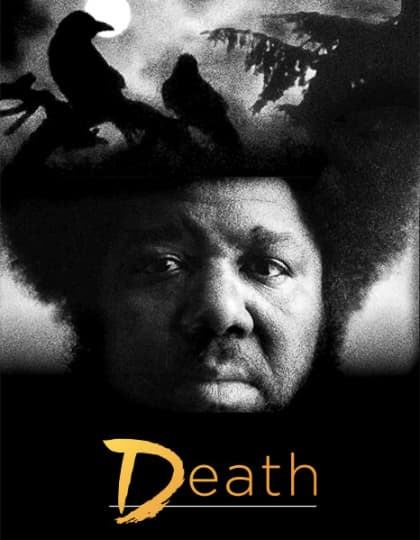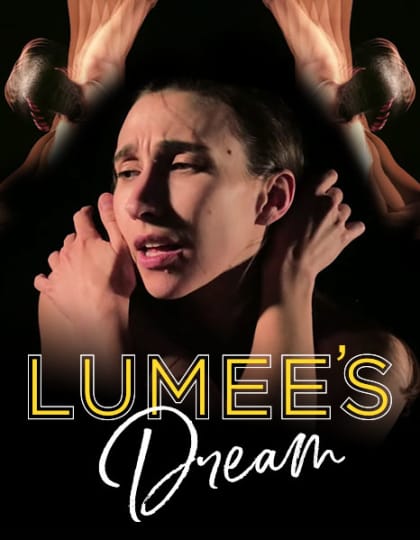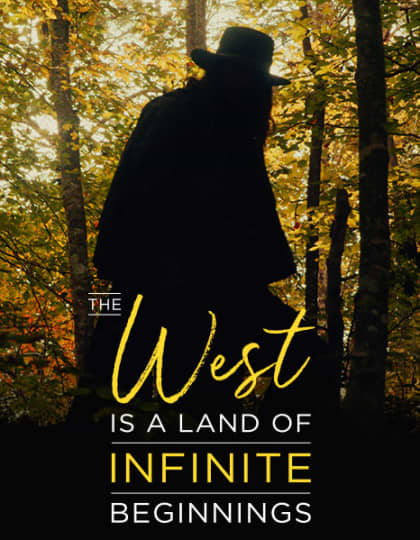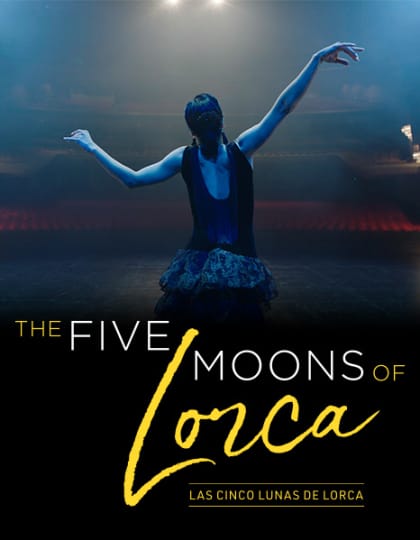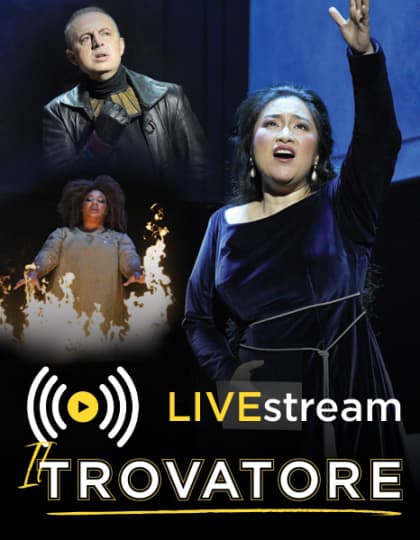Livestreams for Cinderella concluded on December 1, we hope you enjoyed the performance.
In this comedy, true love conquers all — even a pompous stepfather and two self-absorbed stepsisters.
Rossini’s delightfully entertaining spin on the ultimate rags-to-riches tale finds our spunky heroine (no damsel in distress here) with an opportunity to nab the most eligible bachelor in the land and outwit her social-climbing family in the process. Fast-rising operatic royalty Serena Malfi and Levy Sekgapane star as our fairytale lovers, alongside a bit of luxury casting with Ildebrando D'Arcangelo as Cinderella's mysterious benefactor. Rossini master Alessandro Corbelli returns as the stepfather who tries to foil the happy ending.
LA Opera will be offering two livestreamed performances of Cinderella for audience members who are unable to attend an in-person performance, or prefer to watch from their home at this time. As these two performances will be livestreamed from the Dorothy Chandler Pavilion, they will not be able to be re-watched. Access to these performances is $30 per person.
If you are a current ticketholder and would like to exchange into one of our live broadcast performances of Cinderella, you can do so by either logging into your account or calling our box office at 213.972.8001 (Monday to Saturday, 10am to 6pm).
Cast
- Angelina (Cinderella)
- Serena Malfi
- Don Ramiro
- Levy Sekgapane
- Dandini
- Rodion Pogossov
- Don Magnifico
- Alessandro Corbelli
- Alidoro
- Ildebrando D'Arcangelo
Serena Malfi
Angelina (Cinderella)
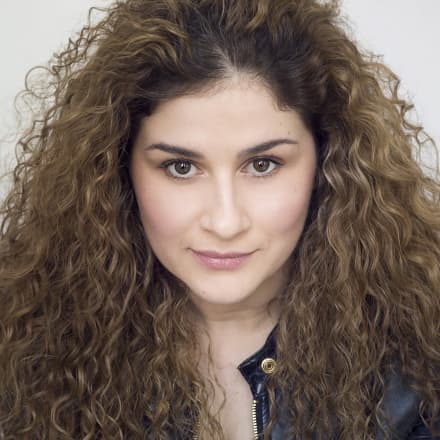
From: Naples, Italy. LA Opera: title role in Cinderella (2021, debut).
Italian mezzo-soprano Serena Malfi studied at the Conservatorio and Accademia di Santa Cecilia in Rome, making her debut in Salieri’s La Grotta di Trofonio at the Winterthur Festival in 2009. Since that debut, she has sung in Zurich, Teatro Comunale Firenze, Jesi Festival, Teatro dell’Opera Roma (Terme di Caracalla) , Concertegebouw Amsterdam, Palau de les Arts Valencia, Teatro Real Madrid, Opera de Oviedo, Opéra National de Paris, Theatre des Champs Elysees ,Teatro Colon Buenos Aires, the Wiener Staatsoper, Teatro alla Scala, Milano, Royal Opera House (Covent Garden) in London, the Bayerische Staatsoper in Munich, the Metropolitan Opera in New York and the Canadian Opera Company in Toronto.
Previous engagements include La Cenerentola in Valencia , Moscow, Wildbad, Teatro Colon Buenos Aires, Opéra de Paris. and Wiener Staatsoper. She made her debut at the Teatro Real as Annio in La Clemenza di Tito and repeated this role at the Wiener Staatsoper and the Bayerische Staatsoper. In Vienna she sang her first Cherubino in The Marriage of Figaro and also repeated the role at the Teatro Colon in Buenos Aires, the Royal Opera House Muscat in Oman with Wiener Staatsoper and at the Metropolitan Opera House in New York.
Another role important in her career to date is Rosina in The Barber of Seville, in which she made her debut at the Zurich Opera in the 2010 season. She also sing the role at the Royal Opera house in London, Teatro Real, Madrid, Staatsoper, Berlin and the Canadian Opera Company in Toronto.
Serena made her debut at Teatro alla Scala in Cosi fan tutte conducted by Daniel Barenboim.
She has appeared twice at the Pergolesi Festival in Iesi. In 2010 in Flaminio and in 2011 in the title role of La Salustia. Both of these opera have now been released on DVD.
She has sung the role of Angelina in La Cenerentola at the San Carlo Napoli, Opera de Lausanne and at the Teatro dell’Opera Roma and most recently she made her debut as Ruggero in Handel’s Alcina at the Semper Oper, Dresden.
Future engagements include, a return to the Metropolitan Opera as Zerlina in Don Giovanni, her debut as Romeo in I Capuleti e Montecchi at Oviedo’s Teatro Campoamor and a return to Teatro alla Scala for La Gazza Ladra conducted by Riccardo Chailly.
Levy Sekgapane
Don Ramiro
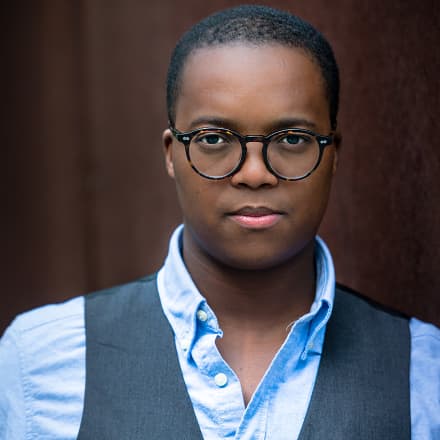
South African tenor Levy Sekgapane studied under Kamal Khan and Hanna van Niekerk at the South African College of Music at the University of Cape Town.
He came to international attention after winning the first prize at the 2015 International Belvedere singing competition, first prize at the 2015 Montserrat Caballé singing competition and first prize at Operalia 2017. Debutsat major opera houses followed, including Opera National de Paris, Bavarian State Opera in Munich and the Gran Teatre del Liceu in Barcelona.
For the shortened 2019/20 season, he performed Count Almaviva in The Barber of Seville at the Teatro Massimo di Palermo and Rossini's Adina with Wexford Festival Opera. At Opéra Royal de Wallonie in Liège, he made his house debut as Ramiro in La Cenerentola, a role he also performed with the Bavarian State Opera in Munich.
In the previous season, he debuted at the Rossini Opera Festival in Pesaro in Adina. He made his South American debut in The Barber of Seville in Santiago di Chile and also appeared for the first time at the Donizetti Festival in Bergamo. He made his house debut at National Opera Bordeaux as Almaviva, which he also performed in a new production with the Glyndebourne Festival Opera, and he returned to the Hamburg State Opera in Il Turco in Italia. He also made his house and role debut as Ernesto in Don Pasquale at the Latvian National Opera in Riga and debuted as Arbace in Mozart’s Idomeneo at the Salzburg Festival.
Other highlights of his young career include his debut as Almaviva at National Opera Paris and at the Deutsche Oper Berlin. At the Royal Opera Copenhagen, he performed Conte di Libenskof in a new production of Il Viaggio a Reims. He debuted as Ramiro in La Cenerentola at Bavarian State Opera and Hamburg State Opera. During the Whitsun Festival at State Theatre Wiesbaden, he debuted as Nemorino in L'Elisir d'Amore On the concert stage he gave his debut at Elbphilharmonie Hamburg singing a New Years Eve gala concert together with soprano Olga Peretyatko under the baton of James Conlon.
His first solo CD with Rossini arias was released by Prima Classic in 2019, recorded with the Munich Radio Orchestra conducted by Giacomo Sagripanti.
Learn more at LevySekgapane.com.
Rodion Pogossov
Dandini
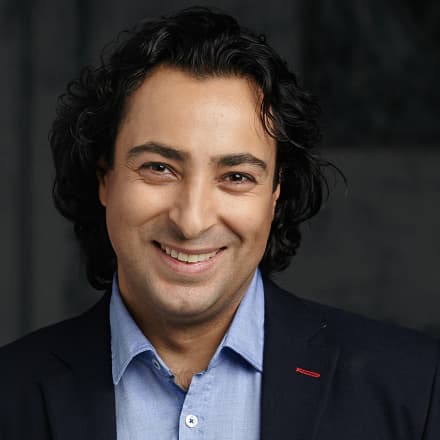
Russian baritone Rodion Pogossov made his LAO debut in 2013 as Papageno in The Magic Flute, returning in 2015 as Figaro in The Barber of Seville.
Russian baritone Rodion Pogossov joined the Lindemann Young Artist Development Program at the start of his career, before making his professional debut at Carnegie Hall with the Metropolitan Opera Chamber Ensemble. Now based in the U.S., he continues to make both American and international house and role debuts and regularly sings at Metropolitan Opera, Glyndebourne Opera Festival, Cincinnati Opera, LA Opera, Oper Graz and many more. He made his Royal Opera House Covent Garden debut as Marcello in La Bohème in 2018.
Major operatic roles have include Figaro in The Barber of Seville which he has sung in houses across the world including at the Hamburgische Staatsoper, Teatro Municipal de Santiago, Michigan Opera Theatre and Metropolitan Opera, Don Giovanni with the Oviedo Opera, Belcore in L’Elisir d’Amore at Glyndebourne under Enrique Mazzola, Papageno in The Magic Flute with LA Opera and James Conlon, Marcello in La Bohème at the Michigan Opera Theatre and at London’s Royal Opera House under Nicola Luisotti, Silvio in Pagliacci at the Metropolitan Opera under Fabio Luisi, his debut in Manon Lescaut at the Bayerische Staatsoper, his debut as Raimbaud in Le Comte Ory with the Seattle Opera, and Marcello in La Bohème and Papageno in The Magic Flute with Cincinnati Opera.
An established recitalist, solo appearances have included at St. John’s Smith Square, Suntory Hall, Vancouver Recital Society and recitals of Rachmaninov and Russian Song at the Wigmore Hall accompanied by Iain Burnside. He has also performed La Scala di Seta under the baton of Enrique Mazzola with the Orchestre National d'Ile de France and Rachmaninov's The Bells at the Vara Konserthus. Rodion has performed Orff’s Carmina Burana with the Royal Liverpool Philharmonic Orchestra, London Philharmonic Orchestra (CD release) and most recently with the Royal Philharmonic Orchestra. He also sang Adelson e Salvini with Opera Rara at the Barbican London, which was also released on their own label.
A highly successful 2018/19 season saw his role debut as Enrico in Lucia di Lammermoor at Oper Graz, his debut as Malatesta in Don Pasquale under Alain Altinoglu at La Monnaie Brussels, and his debut as Escamillo in Carmen at Seattle Opera in Paul Curran’s production under Giampaolo Sagripanti. He returned to the Wigmore Hall in London for a recital of Russian song with pianist Iain Burnside and performed as Papageno in Barrie Kosky’s production of The Magic Flute at the Lincoln Center New York with the Komische Oper during the Mostly Mozart Festival.
Highlights of the 19/20 season have so far included Marcello in Otto Schenk's production of La Bohème at the Bayerische Staatsoper and Figaro in The Barber of Seville at Minnesota Opera. Further upcoming engagements this year include Schaunard in Franco Zeffirelli's La Bohème at the Met, Figaro in The Barber of Seville at Cincinnati Opera and Rachmaninov’s The Bells in concert with the Orchestre National de Belgique. Later, Rodion returns to Glyndebourne and makes his Liceu Barcelona house debut.
As a recording artist, his discography includes his solo recital disc for the prestigious EMI Debut Series which received great acclaim and was followed by a disc of Rachmaninov songs with pianist Iain Burnside. In 2018, he featured on a recording of Russian songs by Medtner, alongside Iain Burnside, released by Delphian Records.
Alessandro Corbelli
Don Magnifico
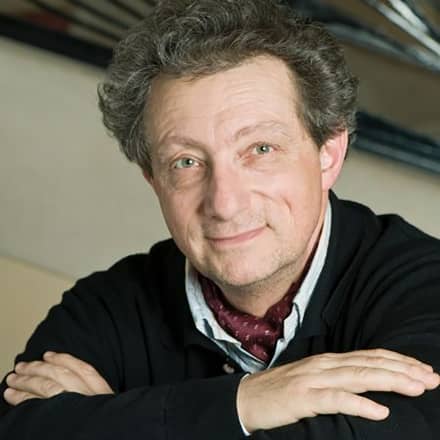
Alessandro Corbelli made his LAO debut in 2013 as Don Magnifico in La Cenerentola, returning in 2015 as Doctor Bartolo in The Barber of Seville.
Born in Turin, he studied singing with Giuseppe Valdengo and Claude Thiolas. Since his debut at the age of 22, he has become an outstanding exponent of the bel canto and Mozart roles for baritone.
He has sung in all the major opera houses: La Scala since 1989 in Cosi fan tutte, The Marriage of Figaro, Don Giovanni, La Cenerentola, Le Comte Ory, Lodoiska and Fedora; Covent Garden in L’Italiana in Algeri, La Cenerentola, Cosi fan tutte, Don Pasquale, Il Turco in Italia , The Daughter of the Regiment, The Barber of Seville and Adriana Lecouvreur; Paris Opera in La Cenerentola, L’Italiana in Algeri, Cosi fan tutte, Madama Butterfly, Gianni Schicchi and The Daughter of the Regiment; Vienna Staatsoper in Cosi fan tutte, The Marriage of Figaro, I Puritani and La Cenerentola. Since his debut at the Metropolitan Opera in 1997 in La Cenerentola as Dandini, he has returned regularly for L’Italiana in Algeri, L’Elisir d’Amore, Gianni Schicchi and as Don Magnifico in La Cenerentola.
He has also sung in Munich, Cologne, Geneva, Madrid, Barcelona,Toulouse, Rome, Naples, Bologna, Florence, Turin as well as at such important festivals as Edinburgh, Salzburg and the Rossini Opera Festival in Pesaro. He made his first appearance at the Glyndebourne Festival in 1985 as Dandini in La Cenerentola, returning for Leporello in Don Giovanni and new productions of Gianni Schicchi and Don Pasquale.
In recent seasons, Mr. Corbelli has sung Don Magnifico in La Cenerentola with LA Opera and the Metropolitan Opera, Doctor Bartolo in The Barber of Seville in San Francisco and Chicago, as well as singing Gianni Schicchi at the Teatro Regio di Torino. He sang Geronio in a new production of Il Turco in Italia at the Aix-en-Provence Festival.
His appearances for the 2019/20 season include performances in Santiago, Chile, for Il Turco in Italia and with the Lyric Opera of Chicago as Don Magnifico in La Cenerentola. Later in the season he returns to Vienna and the Rome Opera for La Cenerentola and to the Metropolitan Opera for Dulcamara in L’Elisir d’Amore, rounding out the season with a return to the Glyndebourne Festival as Doctor Bartolo in The Barber of Seville.
He has received many awards, including the prestigious Premio Abbiati della Critica for Leporello in Don Giovanni at La Scala and the Premio Rossini d’Oro for Don Geronio in Il Turco in Italia in Pesaro.
Ildebrando D'Arcangelo
Alidoro
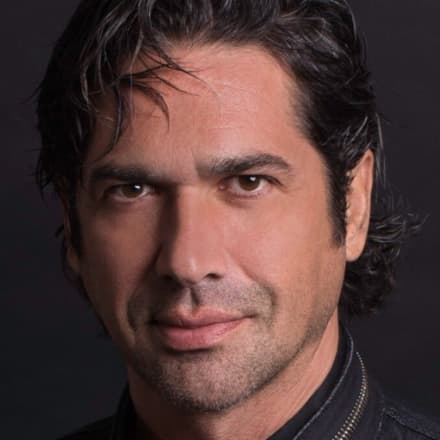
Ildebrando D'Arcangelo made his 2011 company debut as Guglielmo in Così fan tutte, returning as Don Giovanni, Escamillo in Carmen, and Banquo in Macbeth.
Hailed by critics for his stage presence and glorious basso cantabile, he has been particularly renowned for the Mozart roles of Figaro, Count Almaviva, Leporello and Don Giovanni. In recent years he has added the great Verdi roles of Attila, Fiesco in Simon Boccanegra and Banquo in Macbeth as well as Méphistophélès in both Faust and La Damnation de Faust to his repertoire.
Throughout his distinguished career he has appeared at the Vienna State Opera, Salzburg Festival, Royal Opera House Covent Garden, Deutsche Staatsoper Berlin, Opéra National de Paris, Teatro alla Scala Milan, Teatro Real Madrid and Metropolitan Opera New York with conductors including Claudio Abbado, Riccardo Muti, Myung-Whun Chung, Sir John Eliot Gardiner, Bernard Haitink, Nikolaus Harnoncourt, Tugan Sokhiev and Antonio Pappano.
Creative Team
- Conductor
- Roberto Abbado
- Director / Costume Designer
- Laurent Pelly
- Scenery Designer
- Chantal Thomas
- Costume Collaborator
- Jean-Jacques Delmotte
- lighting designer
- Duane Schuler
- Chorus director
- Grant Gershon
Roberto Abbado
Conductor
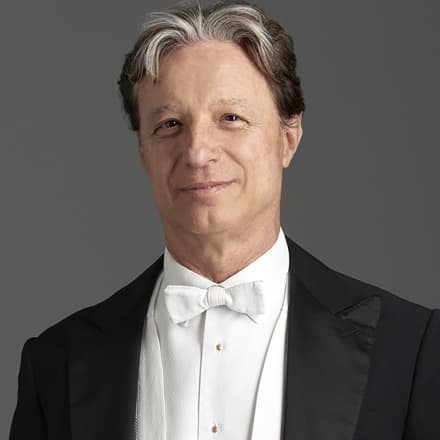
From: Milan, Italy. LA Opera: Cinderella (2021, debut).
Roberto Abbado, awarded the prestigious “Premio Abbiati” by the Italian Music Critics Association for his “accomplished interpretative maturity, the extent and the peculiarity of a repertoire where he has offered remarkable results through an intense season," is Musical Director of Parma’s Festival Verdi. He studied orchestra conducting under Franco Ferrara at the Teatro La Fenice in Venice and at the Accademia Nazionale di Santa Cecilia in Rome, where he was invited – the only student in the history of the Academy – to lead the Orchestra di Santa Cecilia. He made his debut in the United States in 1991 in New York conducting the St. Luke’s Orchestra. Since then he has returned regularly to the US to lead the Symphonic Orchestras of the cities of Boston, Philadelphia, Chicago, Cleveland, Dallas, San Francisco, as well as the Los Angeles Philharmonic, the Saint Paul Chamber Orchestra – of which he is one of the “Artistic Partners” – working with soloists like Yo-Yo Ma, Midori, Nigel Kennedy, Gil Shaham, Joshua Bell, Hilary Hahn, Vadim Repin, Sarah Chang, Yefim Bronfman, Mitsuko Uchida, Alfred Brendel, Radu Lupu, André Watts, Andras Schiff, Lang-Lang, and Katia and Marielle Labèque.
He was Musical Director of the Münchner Rundfunkorchester from 1991 to 1998, and of the Palau de les Arts Reina Sofía in Valencia from 2015 to 2019. He has worked with many ensembles, including Amsterdam’s Concertgebouworkest, the Wiener Symphoniker, the Orchestre national de France, the Orchestre de Paris, the Staatskapelle Dresden, the Gewandhausorchester and the MDR-Sinfonieorchester (Leipzig), the NDR Sinfonieorchester (Hamburg), the Sveriges Radios Symfoniorkester (Stockholm), the Israel Philharmonic Orchestra, the Orchestra di Santa Cecilia, the Orchestra del Maggio Musicale Fiorentino, the Orchestra Sinfonica Nazionale della Rai, the Filarmonica della Scala, the Orchestra of Teatro Comunale di Bologna, the Atlanta Symphony Orchestra, the Cincinnati Symphony Orchestra, the New World Symphony Orchestra, the Minnesota Orchestra, the Malaysian Philharmonic Orchestra, the Taipei Symphony Orchestra and the Orquesta Sinfónica de Madrid.
Roberto Abbado has conducted numerous world premieres and new opera productions, including Fedora and Ernani at the Metropolitan Opera House in New York; I vespri siciliani at the Wiener Staatsoper; La Gioconda, Lucia di Lammermoor, La donna del lago, and the world premiere of Fabio Vacchi’s Teneke at La Scala; L’amour des trois oranges, Aida and La traviata at the Bayerische Staatsoper; Le Comte Ory, Attila, I Lombardi alla Prima Crociata, Il Barbiere di Siviglia, Henze’s Phaedra – at its Italian premiere – and Anna Bolena at the Maggio Musicale Fiorentino; Don Giovanni at the Deutsche Oper Berlin; Simon Boccanegra and La Clemenza di Tito at the Teatro Regio of Turin; La Donna del Lago at the Opéra Garnier in Paris; Ermione, Zelmira, and Mosè in Egitto at the Rossini Opera Festival; the Italian premiere of Marschner’s Der Vampyr at the Teatro Comunale in Bologna, and more recently the world premiere of Arianna, Fedra e Didone at the Festival di Spoleto, Le Trouvère and Luisa Miller at the Festival Verdi in Parma.
A passionate interpreter of contemporary music, Abbado’s repertoire includes composers like Luciano Berio, Bruno Maderna, Goffredo Petrassi, Sylvano Bussotti, Niccolò Castiglioni, Azio Corghi, Ivan Fedele, Luca Francesconi, Giorgio Battistelli, Michele dall’Ongaro, Giacomo Manzoni, Salvatore Sciarrino, Fabio Vacchi, Pascal Dusapin, Henri Dutilleux, Olivier Messiaen, Alfred Schnittke, Hans Werner Henze, Helmut Lachenmann, John Adams, Ned Rorem, Christopher Rouse, Steven Stucky, Charles Wuorinen and Silvia Colasanti.
Particularly significant are his symphonic tours with the Israel Philharmonic Orchestra (Spain 2005), the Chamber Orchestra of Europe (Europe 2006), the Saint Paul Chamber Orchestra (Europe 2007), the Maggio Musicale Fiorentino (Bucarest Enescu Festival 2009), the Orchestra Verdi di Milano (Switzerland 2009), the Orchestre Philharmonique de Monte-Carlo (Russia 2011), and the Boston Symphony Orchestra (USA, East Coast 2011).
During the past seasons he conducted La Favorite at the Salzburg Festival (starring Juan Diego Flórez and Elīna Garanča); Don Pasquale, Samson et Dalila, A Midsummer Night’s Dream, I Vespri Siciliani, Tancredi, La Damnation de Faust, I Masnadieri, Rigoletto and Lucia di Lammermoor at the Palau de les Arts in Valencia; La Gioconda, Maometto II, Lucia di Lammermoor, Benvenuto Cellini, Andrea Chénier and I Masnadieri at the Teatro dell’Opera di Roma; Norma at the Teatro Regio in Turin; he has opened two seasons of the Teatro Comunale di Bologna conducting Macbeth (staged by Bob Wilson) and Parsifal (staged by Romeo Castellucci); Così fan tutte at the Teatro Petruzzelli in Bari; La Traviata (staged by Ferzan Özpetek) on a tour to Hong Kong with the Teatro di San Carlo of Naples, Rigoletto and Lucia di Lammermoor at New York Metropolitan; Simon Boccanegra on a tour to Hong Kong with Turin’s Teatro Regio; Norma at the Teatro Real in Madrid; La Traviata at the Shanghai Opera House; Lucia di Lammermoor at the Théâtre des Champs Elysées in Paris; Don Pasquale at Ópera de Bilbao; Le Siège de Corinthe at the Rossini Opera Festival, Lucia di Lammermoor at the Opéra de Monte Carlo.
More recently he conducted the New Year’s Concert and I Puritani at the Teatro dell’Opera di Roma; Lucia di Lammermoor at the Teatro Massimo di Palermo; Macbeth, Messa da Requiem, Un Ballo in Maschera (Gustavo III) and the Divertissements from Nabucco premiered in modern times in a symphonic concert at the Festival Verdi in Parma.
His recordings include Bellini’s I Capuleti e i Montecchi (nominated “Best Recording of the Year” by the BBC Magazine in 1999), Rossini’s Tancredi (winner of the “Echo Klassik Deutsche Schallplattenpreis” in 1997), Don Pasquale with Eva Mei and Renato Bruson, and Turandot with Eva Marton, Ben Heppner and Margaret Price. Under Decca he has recorded Verismo Arias with Mirella Freni, and L’amour and Arias for Rubini with Juan Diego Flórez. With Deutsche Grammophon he has issued Bel Canto (“Echo Klassik Deutscher Schallplattenpreis” 2009), Revive – both with Elina Garanča – and a DVD of Fedora with Mirella Freni and Placido Domingo from the Metropolitan Opera. Roberto Abbado was the first Italian conductor to lead the traditional New Year’s Concert at Teatro La Fenice in Venice on January 1, 2008 (Hardy Classic Video DVD). Moreover, three DVDs from the Rossini Opera Festival in Pesaro have also been issued: Ermione, under the label Dynamic; Zelmira with Juan Diego Flórez, Kate Aldrich and Gregory Kunde under Decca; and Mosè in Egitto with Sonia Ganassi, Dmitry Korchak, Riccardo Zanellato and Alex Esposito under Opus Arte. With Dynamic he has recorded Giuseppe Verdi’s Messa da Requiem and Le trouvère, directed by Robert Wilson.
Laurent Pelly
Director / Costume Designer
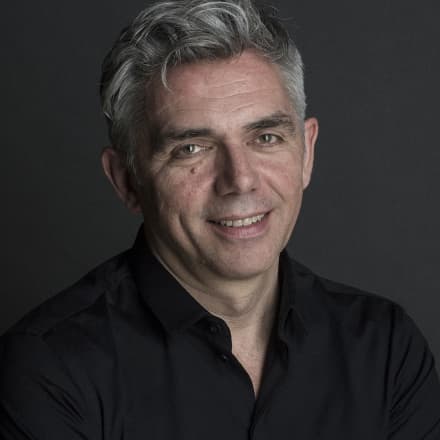
From: Paris, France. LA Opera: Cinderella (2021, debut)
French opera and theatre director Laurent Pelly is sought after by the world’s most prestigious houses. With a natural affinity for Italian and French repertoire, his creative curiosity has led him in recent years towards other repertoire including Russian and Czech, to which he brings his trademark sense of dark humour and surreal fantasy. A master of detail, he designs all the costumes for his productions, and occasionally the sets.
Current projects include La Cenerentola (Dutch National Opera, Grand Théâtre de Génève, Palau de les Arts de Reina Sofia Valencia), Falstaff (Teatro Real Madrid, La Monnaie/de Munt, Opéra National de Bordeaux, Nikikai Opera Foundation Tokyo), Offenbach’s Le Voyage Dans La Lune for L’Opéra Comique and The Marriage of Figaro for Santa Fe Opera. Other recent productions include Lucia di Lammermoor for Opera Philadelphia and Wiener Staatsoper, Offenbach’s Barbe bleue for L’Opéra de Lyon and Candide at The Santa Fe Opera.
As Co-Director of Théâtre National de Toulouse Midi-Pyrénées from 2008 to 2018, highlights of his work include Carlo Gozzi’s L’oiseau vert, (also at Théâtre de la Porte Saint-Martin, Paris), Aristophane’s Les Oiseaux, Ionesco’s La cantatrice chauve, Shakespeare’s Macbeth and A Midsummer Night’s Dream and Victor Hugo’s Mille cents francs de récompense (also at l’Odéon in Paris). January 2021 saw the French premiere of Harvey by Mary Chase in a new translation by Agathe Mélinand premiering at MC2 : Grenoble and touring through the spring including Versailles and Lyon.
Chantal Thomas
Scenery Designer
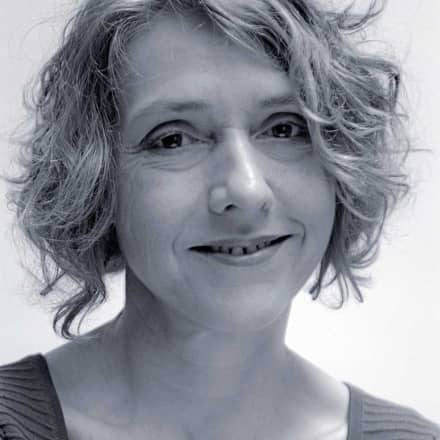
From: France. LA Opera: Cinderella (2021, debut).
Set designer Chantal Thomas studied at the École des Arts Décoratifs, Paris. She has worked regularly with director Laurent Pelly since 1988, with more than 50 productions together including Le Médecin malgré lui (Grand Théâtre de Genève), Le Roi Carotte and Viva la mamma (Opéra de Lyon), I Puritani, Ariadne auf Naxos, Platée and Giulio Cesare (Paris Opéra), La Grande-Duchesse de Gérolstein and La Belle Hélène (Théâtre du Châtelet), Don Pasquale and Candide (Santa Fe Opera), L’Etoile and The Love for Three Oranges (Dutch National Opera), Les Contes d’Hoffmann (Barcelona and San Francisco), Pelléas et Mélisande (Theater an der Wien) and La Traviata (Santa Fe and Turin). She made her Royal Opera debut in 2007 with The Daughter of the Regiment, directed by Laurent Pelly, returning to create set designs for L’elisir d’amore, Manon and Robert le diable, all directed by Pelly. Many of the productions she has worked on for Pelly have been performed by leading opera companies worldwide, including the Liceu, Barcelona, Metropolitan Opera, New York, La Scala, Milan, and Vienna State Opera.
Chantal Thomas has also worked in theatre with directors including Frédéric Bélier-Garcia, Denise Chalem, Michel Rostain and Laura Scozzi, and designed The Marriage of Figaro for the Aix-en-Provence Festival, directed by Richard Brunel.
Jean-Jacques Delmotte
Costume Collaborator
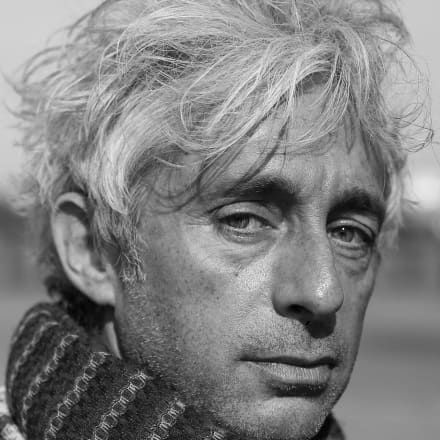
From: Paris, France. LA Opera: Cinderella (2021, debut).
After studying architecture at the Beaux-Arts in Paris and fashion at La Chambre Syndicale de la Couture Parisienne, Jean-Jacques Delmotte began his career designing costumes for theater and contemporary dance companies in France.
In 2000 he worked with director Laurent Pelly for the first time, marking the beginning of a close collaboration on nearly all of his creations. Current work together includes La Cenerentola for Dutch National Opera, Grand Théâtre de Génève and Palau des Les Arts Reina Sofia in Valencia, and Falstaff at the Teatro Real Madrid (co-production with La Monnaie /de Munt, Opéra National de Bordeaux and Nikikai Opera Foundation Tokyo). Further projects for the 2020/21 season included The Marriage of Figaro for the Santa Fe Opera, Viva la Mamma! at Teatro Real in Madrid, and the theater piece Harvey by Mary Chase at MC2 : Grenoble. Other titles together include Candide and La Traviata (Santa Fe Opera), Le Roi Carotte (Opéra de Lyon and Opéra de Lille), Viva La Mamma! (Opéra de Lyon and Grand Théâtre de Genève), and The Barber of Seville at the Théâtre des Champs Elysées in Paris, Edinburgh International Festival, Opéra de Marseille, Grand Théâtre de Luxembourg, Stadttheater Klagenfurt and Opéra de Tours.
Additional projects with Laurent Pelly include La Belle Hélène at the Théâtre du Chatelet (and at Santa Fe Opera and English National Opera), Manon at the Royal Opera House in London, Metropolitan Opera and Teatro alla Scala in Milan, Cendrillon at the Santa Fe Opera, Royal Opera House, La Monnaie/de Munt, L’Opéra de Lille, Metropolitan Opera, Lyric Opera of Chicago and Teatro del Liceu in Barcelona, Don Quichotte and Le Coq d’Or at La Monnaie/de Munt Brussels, L'enfant et les sortilèges at the Glyndebourne Festival, Teatro alla Scala and Matsumoto Japan, The Threepenny Opera at the Comédie Française, The Love for Three Oranges and L’etoile at Dutch National Opera Amsterdam, and I Puritani at L’Opera National de Paris.
He also enjoys collaborations with other directors. Current projects include costume design for Giovanna d’Arco in Biel and Tours directed by Yves Lenoir, with whom he also created Jenůfa in Dijon in 2018. Other projects have included Benvenuto Cellini and The Magic Flute at the Staatstheater Nürnberg and Opéra National de Bordeaux and Les Indes Galantes at Théâtre du Capitole in Toulouse with Laura Scozzi, Idomeneo at L’Opéra national du Rhin with Christoph Gayral and Le Misanthrope at Las Cigale, Paris.
He is also an artist whose works are regularly exhibited; learn more at jijidelpaintings.com.
Duane Schuler
lighting designer
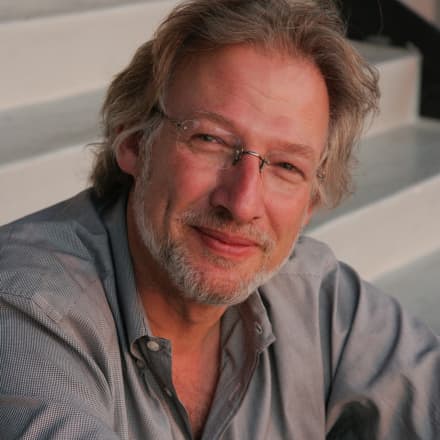
From: Elkhart Lake, Wisconsin. LA Opera: Tancredi (1989, debut); 35 productions to date including, most recently, Hansel and Gretel (2018) and Cinderella (2021). Upcoming: Tosca (2022).
Duane Schuler has achieved national and international acclaim as a theatrical lighting designer. He has designed for the Metropolitan Opera, Lyric Opera of Chicago, New York City Opera, Salzburg Festival, Deutsche Oper Berlin, Seattle Opera, and American Ballet Theatre. His extensive work with LA Opera includes Simon Boccanegra, Manon, Don Giovanni, The Marriage of Figaro, Ariadne auf Naxos, Rigoletto and Tristan und Isolde. He is a founding partner of the theater planning and architectural lighting design firm Schuler Shook.
Grant Gershon
Chorus director
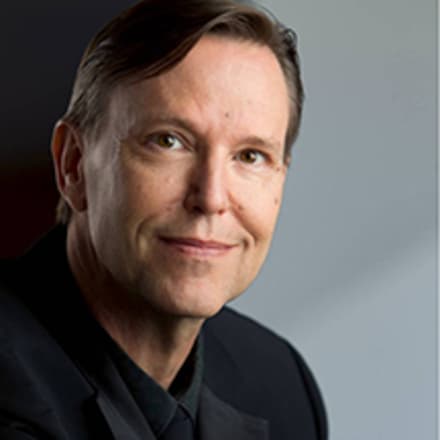
From: Alhambra, California. LA Opera: Resident Conductor from 2012 to 2022, he made his LAO conducting debut with La Traviata (2009). He has conducted 15 productions to date including, most recently, The Magic Flute in December 2019.
Hailed for his adventurous and bold artistic leadership, and for eliciting technically precise and expressive performances from musicians, Grammy Award-winner Grant Gershon celebrated his 20th anniversary as Kiki & David Gindler Artistic Director of the Los Angeles Master Chorale in the 2021/22 season. The Los Angeles Times has said the Master Chorale "has become the most exciting chorus in the country under Grant Gershon,” a reflection on both his programming and performances.
During his tenure, Gershon has led more than 200 Master Chorale performances at Walt Disney Concert Hall in programs encompassing a wide range of choral music, from the early pillars of the repertoire to contemporary compositions. He has led world premiere performances of major works by John Adams, Louis Andriessen, Eve Beglarian, Billy Childs, Gabriela Lena Frank, Ricky Ian Gordon, Shawn Kirchner, David Lang, Morten Lauridsen, Steve Reich, Ellen Reid, Christopher Rouse, Esa-Pekka Salonen, and Chinary Ung, among many others.
Gershon is committed to increasing representation in the choral repertoire, and in 2020 he announced that the Master Chorale will reserve at least 50% of each future season for works by composers from historically excluded groups in classical music.
In July 2019, Gershon and the Master Chorale opened the famed Salzburg Festival with Lagrime di San Pietro, directed by Peter Sellars. The Salzburg performances received standing ovations and rave reviews from such outlets as the Süddeutsche Zeitung, which called Lagrime “painfully beautiful” (Schmerzliche schön). Gershon and the Master Chorale debuted the production in Los Angeles in 2016 and began touring the world with it in 2018. In its review of the premiere of Lagrime, the Los Angeles Times noted that the production “is a major accomplishment for the Master Chorale, which sang and acted brilliantly. It is also a major accomplishment for music history.”
He was the Resident Conductor of LA Opera from 2012 to 2022, and in this capacity conducted the West Coast premiere of Philip Glass’s Satyagraha in November 2018. He made his acclaimed debut with the company with La Traviata in 2009 and has subsequently conducted productions including Il Postino, Madama Butterfly, Carmen, Florencia en el Amazonas, Wonderful Town, The Tales of Hoffmann and The Pearl Fishers. In 2017, he made his San Francisco Opera debut conducting the world premiere of John Adams’s Girls of the Golden West directed by Peter Sellars, who also wrote the libretto, and made his Dutch National Opera debut with the same opera in March 2019. Gershon and Adams have an enduring friendship and professional relationship which began 27 years ago in Los Angeles when Gershon played keyboards in the pit for Nixon in China at LA Opera. Since then, Gershon has led the world premiere performances of Adams’ theater piece I Was Looking at the Ceiling and Then I Saw the Sky, premiered his two-piano piece Hallelujah Junction (with Gloria Cheng), and conducted performances of Harmonium, The Gospel According to the Other Mary, El Niño, The Chairman Dances, and choruses from The Death of Klinghoffer.
In New York, Gershon has appeared at Carnegie Hall and at the historic Trinity Wall Street, and he has performed on the Great Performers series at Lincoln Center and the Making Music series at Zankel Hall. Other major appearances include performances at the Ravinia, Aspen, Edinburgh, Helsinki, Salzburg, and Vienna festivals, the South American premiere of LA Opera’s production of Il Postino in Chile, and performances with the Baltimore Symphony and the Coro e Orchestra del Teatro Regio di Torino in Turin, Italy. He has worked closely with numerous conductors, including Claudio Abbado, Pierre Boulez, James Conlon, Gustavo Dudamel, Lorin Maazel, Zubin Mehta, Simon Rattle, and his mentor, Esa-Pekka Salonen.
His discography includes the 2022 Grammy Award-winning recording of Mahler's Symphony No. 8 with the Los Angeles Philharmonic as well as Grammy–nominated recordings of Sweeney Todd (New York Philharmonic Special Editions) and Ligeti’s Grand Macabre (Sony Classical); six commercial CDs with the Master Chorale, including Glass-Salonen (RCM), You Are (Variations) (Nonesuch), Daniel Variations (Nonesuch), A Good Understanding (Decca), Miserere (Decca), and the national anthems (Cantaloupe Music); and two live-performance albums, the Master Chorale’s 50th Season Celebration recording and Festival of Carols. He has also led the Master Chorale in performances for several major motion pictures soundtracks, including, at the request of John Williams, Star Wars: The Last Jedi and The Rise of Skywalker. Gershon was named Outstanding Alumnus of the Thornton School of Music in 2002 and received the USC Alumni Merit Award in 2017.
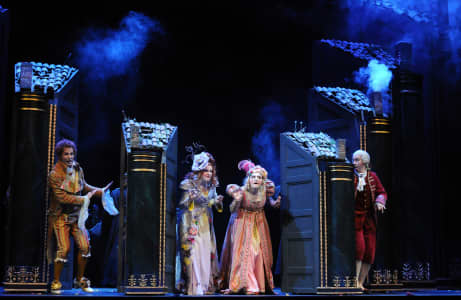
Synopsis

Synopsis
Act One
In the crumbling home of Don Magnifico, his daughters Clorinda and Tisbe bicker while their step-sister Angelina, known as Cinderella, does her chores. As she scrubs the floor, she sings a folk song about a king who marries a simple girl because she has a good heart. The sisters mock her for being so sentimental and continue their chatter. When a beggar knocks at the back door, the sisters treat him badly, but Cinderella offers him bread and coffee. What no one knows is that the beggar is really Alidoro, Prince Ramiro’s tutor, on a fact-finding mission for the prince, who is in the neighborhood looking for a bride.
A group of courtiers arrive and announce that Ramiro will soon follow to take the ladies to his palace, where he will choose his bride. The sisters immediately begin tormenting Cinderella, demanding that she prepare them for the evening. The noise wakes Don Magnifico, who describes his dream: he was a donkey and his daughters were royalty. The prince arrives disguised as his valet, Dandini. He is in search of Cinderella, whose kindness his tutor Alidoro has related. He surprises Cinderella, causing her to drop the dishes she’s carrying, and the two find themselves attracted to one another.
Dandini arrives, declaring himself to be the prince with exaggerated pomp. Cinderella asks her step-father to let her go to the palace with her step-sisters, but he cruelly refuses. When Ramiro and Dandini ask Magnifico where the third daughter of the household is, he claims that she is dead. Everyone struggles to untangle the situation. Alidoro enters, again disguised as the beggar. He reveals his identity to Cinderella and invites her to the ball.
The company has assembled at the palace, where Dandini, still playing the prince, appoints Don Magnifico master of the wine cellar in appreciation of his ability to consume vast quantities of alcohol. Magnifico immediately proffers a decree forbidding the dilution of wine. Dandini and the real prince share their encounters with Magnifico and his slightly warped family. They can’t imagine which of his two dreadful daughters Alidoro could have been praising. They devise another test in which the disguised Dandini offers the hand of his valet, played by the real prince, to Clorinda and Tisbe. Both women refuse in disgust. The unexpected arrival of a beautiful stranger—who bears an amazing resemblance to Cinderella—heightens everyone’s anxiety.
Act Two
At the palace after the feast, Don Magnifico tries to reassure himself that one of his daughters will still marry the prince, despite their lackluster performance that evening. He imagines himself laden with royal appointments, bestowing his favors only to pretty ladies willing to grease the wheels with a small cash donation. Annoyed by the constant attentions of Dandini (who is still disguised as the prince), Cinderella tells him that she would rather marry the prince’s “valet.” Ramiro’s heart leaps at this declaration, and he tells Cinderella his true identity. She tells him that if he really loves her, he must come find her, giving him a bracelet that matches one she always wears. Magnifico corners Dandini, and demands that the “prince” choose a daughter. Dandini tells Magnifico to be patient, and then reveals that he is really just a valet, a confession that bewilders the Don.
Back at Don Magnifico’s house, Cinderella sings her folk song again, and Magnifico and the step-sisters return from the palace. Alidoro and the prince, meanwhile, search for Cinderella, and a fortuitous storm causes the prince’s carriage to get stuck outside Magnifico’s house. The two take shelter inside, and Ramiro immediately recognizes his beloved. Cinderella begs Ramiro to be kind to Magnifico and his daughters, who, even though they treated Cinderella despicably, deserve forgiveness. At the wedding banquet in the prince’s palace, Cinderella rejoices at her happy fate.
Performed in Italian with English subtitles
Running time: approximately three hours, five minutes, including one intermission
Production from the Dutch National Opera
Purchase Livestream Access Below
-
GET ACCESS {{ performance.display_time }}AvailableOnline{{ performance.display_day }}{{ performance.display_month_clean }} {{ performance.display_date }}

